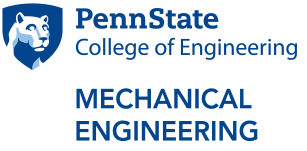Bat Flight Aeromechanics (and the surprising connections to renewable energy harvesting)
ABSTRACT: In this talk I will describe three configurations dominated by strong vortical wakes. To kick things off, I will provide some results from our long-term effort to characterize, understand and model the aeromechanics that underpin the incredibly agile and maneuverable flight of bats. One key feature of bat flight is their use of leading edge vortices to enhance the lift at low flight speeds, and a key focus of the talk will include two research threads that were inspired by the bat flight work. Firstly, I will show measurements of the formation and growth of the leading-edge vortex from the sharp leading edge of a compliant plate and argue for a universal scaling that governs the vortex dynamics. Secondly, I will describe our work on hydrokinetic energy harvesting that harness the unsteady dynamics of the leading-edge vortex generated by a pitching/plunging hydrofoil.
BIOGRAPHY: Kenny Breuer received his Sc.B. from Brown University in Mechanical Engineering (1982) and his Ph.D. from MIT in Aeronautics and Astronautics (1988). He spent two years back at Brown as a Post Doctoral Fellow in Applied Mathematics and nine years on the faculty at MIT, before finally returning to Brown in 1999, where he is currently Professor of Engineering. In 2010 he received a courtesy appointment as Professor of Ecology and Evolutionary Biology. From 2011 to 2014 he served as Senior Associate Dean of Engineering for Academic Programs. Professor Breuer’s research interests are in the broad field of Fluid Dynamics and cover a wide range of diverse topics. At the micron-scale, he has been active in the development of diagnostic techniques for micron-scale and near-surface velocimetry, in the characterization of slip flows, the mechanics of bacterial motility and flagellar and cilliar mechanics and the nanoscale flow near a moving contact line. At the macro-scale, he has worked on the mechanics of animal flight (particularly bat flight), vortex interactions with compliant structures and, most recently, energy harvesting from fluid flows. With his students and collaborators, he has co-authored over one hundred peer-reviewed articles in scientific journals, numerous book chapters, and has edited several books, including Microscale Diagnostic Techniques (Springer, 2004). Professor Breuer has also been active in fluid dynamics education and outreach, He is a co-author on the best-selling DVD: Multimedia Fluid Mechanics (Camb. Univ. Press), and co-editor of the compilation: A Gallery of Fluid Motion (Camb. Univ. Press). He has also appeared on programs such as PBS’s NOVA, NPR’s Science Friday, the Discovery Channel’s series Weird Connections, and the BBC’s series Invisible Worlds. His research has been features in popular press such as the New York Times, Discover magazine and has been highlighted on the website of the National Science Foundation. Professor Breuer has received a number of honors and awards including Fellow of the American Society of Mechanical Engineers (2013), Fellow of the American Physical Society (2010), Associate Fellow if the American Insitute of Aeronautics and Astronautics (2013), Chair of the APS-Division of Fluid Dynamics (2012), National Merit Scholar (1978), ONR Graduate Fellowship (1982-7). He was selected as the Midwest Mechanics lecturer in 200&. And was the Paris Sciences Professor at ESPCI in 2015.
Event Contact: Serena Sidwell


